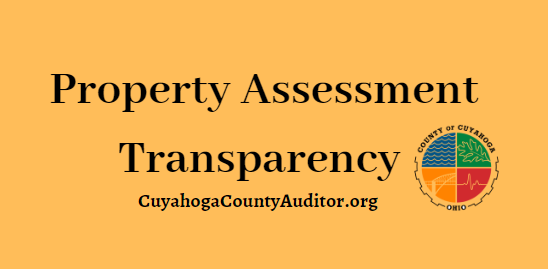Property assessment transparency is essential for maintaining fairness and equity in the taxation system. County auditors play a crucial role in ensuring transparency and collaborating with local communities to achieve this goal. In this article, we’ll explore the significance of property assessment transparency, the role of county auditors, and the collaborative efforts between auditors and local communities.
Introduction
Property assessment transparency is vital for fostering trust and accountability in the taxation process. It ensures that property values are assessed accurately and fairly, preventing disparities and inequities in tax burdens. County auditors, as guardians of fiscal responsibility, have a responsibility to promote transparency and engage with local communities to address their concerns.
Understanding Property Assessment Transparency
Definition and Significance
Property assessment transparency refers to the openness and accessibility of assessment processes and data. It allows property owners to understand how their property values are determined and ensures that assessments are conducted impartially and consistently.
Benefits for Local Communities
Transparent property assessments benefit local communities by promoting trust in the tax system, facilitating informed decision-making, and ensuring that tax burdens are distributed fairly. Transparent assessments also help prevent disputes and legal challenges related to property taxes.
County Auditor’s Role
Responsibilities and Duties
County auditors are responsible for overseeing property assessments within their jurisdiction. They ensure that assessments comply with applicable laws and regulations, maintain accurate property records, and address taxpayer inquiries and concerns.
Promoting Transparency
County auditors promote transparency by providing access to assessment data, conducting educational workshops and outreach programs, and collaborating with stakeholders to improve assessment practices.
Collaboration with Local Communities
Engaging Stakeholders
County auditors collaborate with local communities by engaging stakeholders, such as property owners, community organizations, and government agencies, in discussions about assessment policies and practices.
Community Outreach Initiatives
Auditors conduct community outreach initiatives, such as town hall meetings, informational sessions, and online forums, to educate residents about property assessments and solicit feedback on assessment processes.
Ensuring Fair and Equitable Assessments
Preventing Bias and Inaccuracies
County auditors work to prevent bias and inaccuracies in property assessments by implementing standardized appraisal methods, conducting regular audits of assessment practices, and addressing discrepancies in property values.
Addressing Community Concerns
Auditors address community concerns by investigating complaints, reviewing assessment appeals, and providing guidance to property owners on how to challenge unfair assessments.
Tools and Resources
Access to Assessment Data
County auditors provide property owners with access to assessment data, including property records, valuation methodologies, and comparable sales information, to promote transparency and accountability.
Educational Workshops
Auditors offer educational workshops and resources to help property owners understand assessment processes, appeal procedures, and their rights and responsibilities as taxpayers.
Success Stories and Case Studies
Examples of Collaboration
County auditors collaborate with local governments and community organizations to develop innovative solutions to assessment challenges, such as implementing technology-driven assessment tools and establishing citizen advisory boards.
Positive Outcomes for Communities
Collaborative efforts between auditors and local communities result in positive outcomes, including improved assessment accuracy, reduced tax disputes, and enhanced public trust in the tax system.
Future Initiatives
Improving Transparency Efforts
County auditors are committed to improving transparency efforts by leveraging technology, enhancing communication channels, and implementing best practices in assessment administration.
Addressing Community Feedback
Auditors will continue to solicit feedback from local communities and incorporate community input into assessment policies and practices to ensure that assessments reflect the needs and concerns of residents.
Conclusion
Collaboration between county auditors and local communities is essential for promoting property assessment transparency and ensuring fair and equitable taxation. By engaging stakeholders, providing access to information, and addressing community concerns, auditors contribute to a more transparent and accountable tax system.
